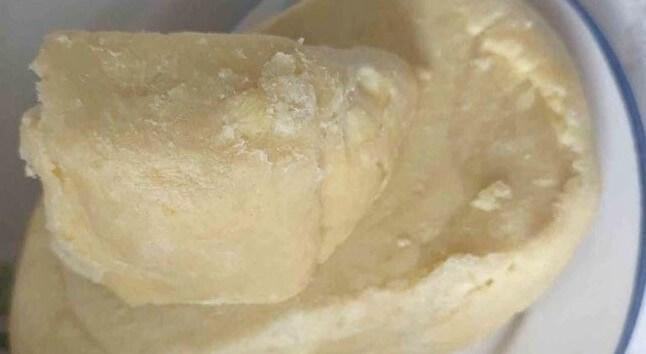Imagine waking up with itchy, red welts all over your body, like tiny vampires had feasted on you while you slept. This is the unfortunate reality for many people who have encountered bed bugs. These elusive pests are notoriously difficult to eradicate, leaving homeowners frustrated and desperate for solutions.
In this article, we will explore a surprising remedy – shea butter for bed bugs. We’ll discuss its potential benefits, how to use it effectively, compare it with another common remedy, and even share a personal experience with this unique approach.
Shea Butter: A Potential Home Remedy
Bed bugs, those tiny blood-sucking insects that infest your bed and furniture, can be a real nuisance. Traditional pest control methods often involve harsh chemicals or expensive professional exterminators. Shea butter, a natural and gentle substance, has emerged as an alternative remedy for these pesky critters.
Does Shea Butter work Against Bed Bugs?
Before we delve into the details of using shea butter against bed bugs, it’s important to address its effectiveness. While there is limited scientific evidence to support this remedy, anecdotal reports suggest that shea butter, also called karite butter, can create a protective barrier on the skin, making it difficult for bed bugs to bite. However, it may not be a foolproof solution, and results may vary.
Exploring a Bed Bug Video: How to NEVER get BED BUGS
This video offers valuable insights into preventing bed bug infestations. It provides practical tips and advice to safeguard your home against these unwelcome visitors, helping you avoid the bed bug nightmare.
How to Use Shea Butter for Bed Bugs
To employ shea butter as a potential bed bug deterrent, simply apply a thin layer to exposed skin before bedtime. Some people even mix shea butter with essential oils like lavender or tea tree oil, which are known for their insect-repelling properties. The idea is that the scent and texture of shea butter may deter bed bugs from feeding on you while you sleep.
A Glimpse of Bed Bugs
Bed bugs are small, reddish-brown insects that feed on the blood of humans and animals. They are notorious for hiding in cracks and crevices, making them difficult to detect and eliminate.
History of Bed Bugs and Pest Control
Throughout history, bed bugs have plagued humanity. In the early 20th century, they were nearly eradicated in developed countries thanks to the use of potent pesticides. However, a resurgence in bed bug populations in recent years has prompted a search for more eco-friendly solutions, like shea butter.
Combining Shea Butter with Another Remedy
For a more comprehensive approach to bed bug control, you can combine shea butter with another commonly used remedy: Baking Soda. Baking Soda is a fine, powdery substance that can be sprinkled around infested areas. When bed bugs come into contact with the powder, their exoskeletons are damaged, ultimately leading to their death. (source)
To use these two remedies together, apply a thin layer of shea butter on your skin to deter bed bugs from biting, and then strategically place baking soda in potential hiding spots. This combination approach may increase your chances of effectively dealing with a bed bug infestation.
Shea Butter vs. Baking Soda for bed bugs
When comparing shea butter and baking soda, it’s essential to consider their strengths and weaknesses. Karite butter offers a natural, skin-friendly solution, but its effectiveness is not guaranteed. On the other hand, baking soda is a popular bed bug killer but should be handled with care and caution due to its dusty nature. The choice between the two depends on your preferences and circumstances.
To learn more check our dedicated article on Baking Soda and bed bugs.
Shea Butter for Bed Bug Bites and Traps
Beyond using shea butter to deter bed bugs, it can also be employed in other ways. Some individuals use shea butter to soothe the itching and irritation caused by bed bug bites. Its moisturizing properties can provide relief and promote healing. Additionally, shea butter can be used in bed bug traps, luring the pests with its scent and stickiness, helping to capture and control the infestation.
Shea butter can be used to treat and soothe bed bug bites:

A Personal Bed Bug Pest Control Story
One homeowner, Lisa, shared her experience with using shea butter against bed bugs. She applied shea butter before bedtime and noticed a reduction in the number of bites she received. While it didn’t completely eliminate the problem, it provided some relief and peace of mind during her battle against these persistent pests.
In conclusion, while shea butter may not be a guaranteed solution for bed bug infestations, it offers a natural and gentle alternative to harsh chemicals. When used in combination with other remedies like baking soda, it can be a valuable tool in the fight against these troublesome insects.

